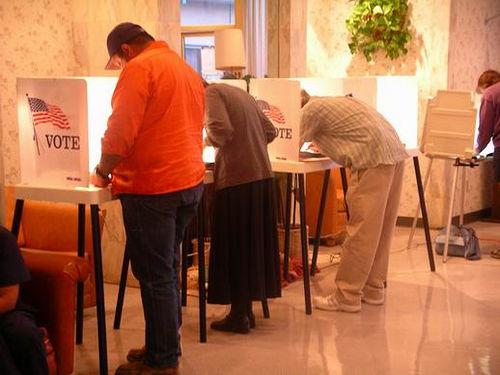Center for Worker Freedom and Americans for Tax Reform Endorse Virginia Right-to-Work Ballot Measure

By Olivia Grady
The Center for Worker Freedom and Americans for Tax Reform urge Virginia voters to vote yes on Question 1 and enshrine right-to-work in the state constitution.
Virginia has been a right-to-work state by statute (§ 40.1-59) since 1947. Question 1 on the November 8th state ballot asks the voters whether the state constitution should be amended to guarantee workers have a choice regarding unionization. The question reads:
Should Article I of the Constitution of Virginia be amended to prohibit any agreement or combination between an employer and a labor union or labor organization whereby (i) nonmembers of the union or organization are denied the right to work for the employer, (ii) membership to the union or organization is made a condition of employment or continuation of employment by such employer, or (iii) the union or organization acquires an employment monopoly in any such enterprise?
If it passed, section 11-A would be added to Article 1 of the Virginia Constitution:
Any agreement or combination between any employer and any labor union or labor organization whereby nonmembers of the union or organization are denied the right to work for the employer, or whereby such membership is made a condition of employment or continuation of employment by such employer, or whereby any such union or organization acquires an employment monopoly in any enterprise, is against public policy and constitutes an illegal combination or conspiracy and is void.
State Delegate Richard Bell (R-Staunton) has been a driving force behind the right-to-work effort. The state legislature in February 2016 passed a resolution putting the measure on the ballot. Every single Democrat legislator voted against it, and Democrat Governor Terry McAuliffe voiced his opposition.
Union members have been knocking on doors in Virginia to persuade individuals to vote against the amendment. AFL-CIO Executive Vice President Tefere Gebre was even out canvassing.
Supporters of this amendment argue that right-to-work is a fundamental right and that Democrat politicians have suggested changing the law and may succeed in doing so in the future. Jay McConville, explained in his Bearing Drift article “The Slippery Slope on Right-to-Work” that changes to Virginia’s Right-to-Work law could happen:
Today [Virginia state] Senator [Scott] Surovell argues against the amendment, echoing Brian’s argument that, since no one is trying to change these laws, a constitutional amendment is unnecessary. He tips his hand, however, when he goes onto argue, in the very same statement, why right to work laws are “bad policy” and that “[w]orkers in states with right-to-work laws earn 12.1 percent less than workers in other states, median household incomes are lower and fewer workers in right to work states have access to basic benefits like health insurance. States with right to work laws spend 32 percent less on K-12 education than other states, have higher rates of workplace fatalities and have higher poverty and infant mortality rates. Workers in these states also have fewer job protections.”
Including right-to-work in the Virginia Constitution would make it harder to gradually weaken right-to-work because the constitution can only be changed through an amendment. It should be noted that Virginia’s political dynamics have changed.
But opponents argue the amendment is not necessary. Brian Schoeneman in his Bearing Drift article said:
Virginia’s right-to-work laws are not in any danger of being repealed, and there is no active campaign to end them, either at the state or the federal level. This is a solution in search of a problem. Further, there is no need to lard up the Virginia Constitution with policy provisions that are not fundamental to the running of the government.
But Matt Patterson, executive director of the Center for Worker Freedom, argues that unions and their political puppets in government have aggressively fought worker choice and that enshrining right-to-work constitutionally could be a valuable safeguard.
“A number of red states have gone purple or even blue the last couple of election cycles,” said Patterson. “Virginians who cherish right-to-work should beware that future legislators may take a dim view of this heritage. It’s best to strengthen it while you can.”





